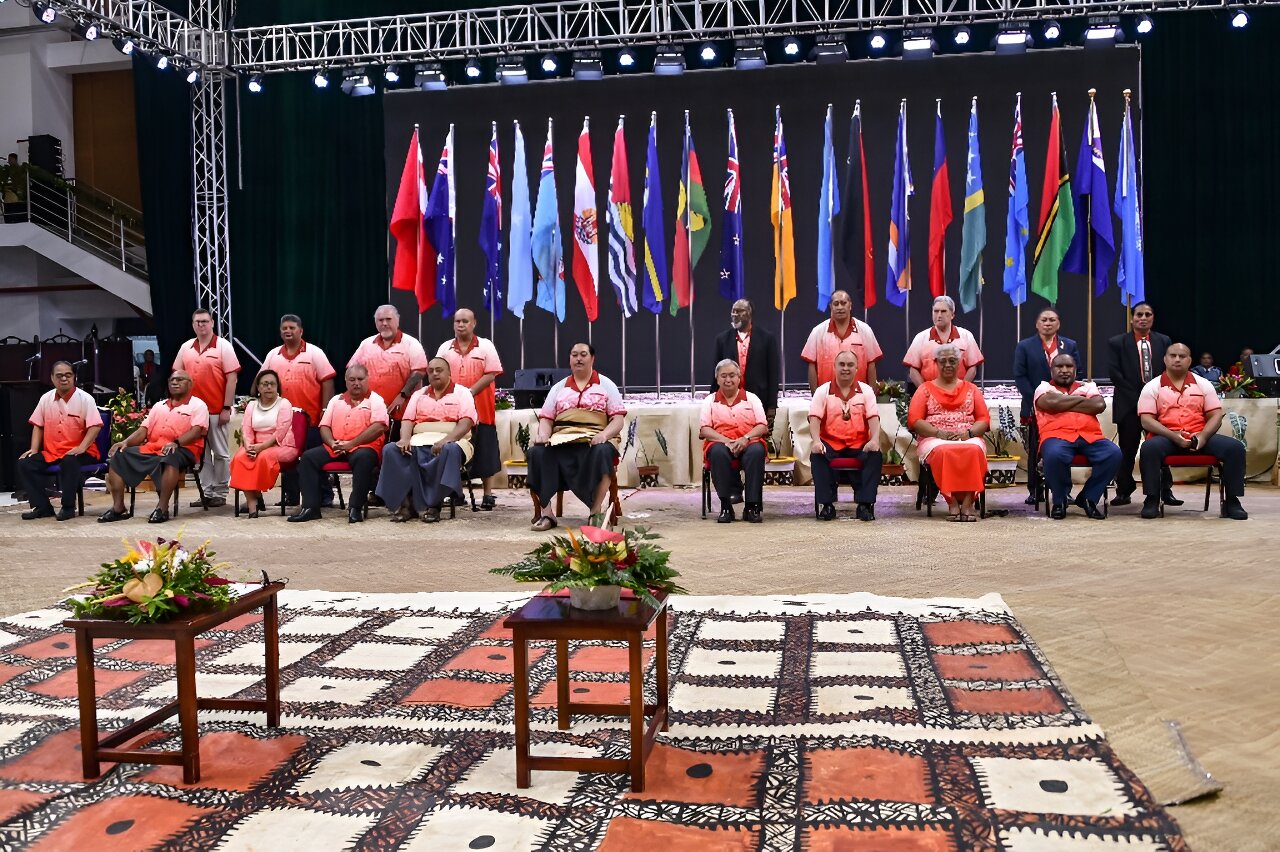The Pacific Islands Forum got underway in Tonga’s capital Nuku’alofa, with leaders hoping to draw global attention to the region’s worsening climate plight.
“We really need to ensure that we continue to push for action from countries that are the most polluting,” Tuvalu Climate Minister Maina Talia told AFP on the sidelines of the summit.
“Polluter pays should be on the table.”
Pacific leaders will mount a renewed push later this week for a homegrown climate adaptation fund, an idea that largely hinges on financial contributions from foreign nations.
They will also push to speed the transition away from oil, gas and other highly polluting fuel sources.
“We cannot address climate change without addressing the root cause, which is the fossil fuel industry,” Talia said.
“It’s disaster after disaster, and we are losing the capacity to rebuild, to withstand another cyclone or another flood.”
That is awkward terrain for Forum member Australia, a coal-mining superpower belatedly trying to burnish its green credentials.
Australia wants to co-host the COP31 climate conference alongside its Pacific neighbours in 2026.
But first, it must convince the bloc it is serious about slashing emissions.
UN Secretary-General Antonio Guterres is making a rare appearance at the summit, in a trip designed to highlight the Pacific’s myriad climate threats.
“The decisions world leaders take in the coming years will determine the fate, first of Pacific Islanders, and then everyone else, Guterres said.
“If we save the Pacific, we save the world.”
The fractious topic of deep-sea mining does not sit on any official agenda, but will likely be a topic of heated debate behind closed doors.
Forum host Tonga sits at the vanguard of nations eager to open up the emerging industry, joined by fellow forum members Nauru and the Cook Islands.
But others such as Samoa, Palau and Fiji see it as an environmental catastrophe in the making, giving their full-throated backing to an international moratorium.













